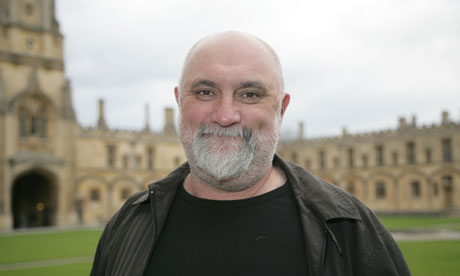
My family always knew we were different. It was something we revelled in, and it was accepted. We were communists, we were part of this bigger thing. Generally, we were happy with that difference. It made us feel good about ourselves.
In many ways, we were ordinary, working-class people, but communism was always there – for instance, in the choices we made about what was seen on television, which was anything by the Unity Theatre, or anything from the Soviet Union. I was allowed to buy British comics, but not American ones. But it wasn't like being Amish.
Molly, my mother, is 95 this year. We are friends. It's a complicated relationship, but we're very close. She's difficult, particularly with me – she gets too wound up and invests an awful lot in me. But I love her – she's my mother. She's adored by people – the ones that adore her really think she's wonderful.
Was she a good mother? In some ways, yes. She was very good about nutrition, putting money aside for me and making sure I got an education. And I was adored, always told I was special. But there was also the shouting and screaming; it could be unsettling. And sometimes, the fact that she wasn't like anyone made you want to swap her for someone else. When I was a teenager, it used to really shock people when they'd see Molly and me in the pub, telling each other to fuck off.
Joe, my father, was very genial, and people loved him. He started to get ill when I was young, and in a way, he's a mystery to me. His life before Molly is mysterious because he was quite old when he met her. Later, it was either Alzheimer's disease or a series of strokes, and it was spread over a long time. Seeing him disintegrate was never discussed, but it was very traumatic, and I do very much regret that I didn't know him. I was very confused – from about 14, I was never in the house because it was too painful. He died in 1983. He used to come to see me in shows. I remember him coming to early stuff, but it's hard to know if he realised what was going on.
As a young communist, there were two ways I rebelled. One was by becoming a different kind of communist. But also there was always a bit of me that thought it was all absolute cobblers. There was a silent, watchful part of me, and the things I remember as a child are always the things that are ambiguous, which suggests I was thinking: "Hang on a bit."
Holidays were a really big thing. It was very central to Molly's idea of herself that we took holidays. They were massively significant events; the year was built around them. For me, the sense of constantly going somewhere, of being on some train, was very powerful, and we had free passes because Joe worked on the railways. When I was a teenager, and took off for Paris on my own, I was trying to emulate Joe and his wanderings before the war, but I was so ill-equipped and useless at travelling by myself, and the gendarmes barred me from Paris.
Molly's family were terribly devout, and we thought that was weird. My parents' religion was communism, but I think Molly was, and is, very Jewish, and I am Jewish, as far as the Gestapo is concerned, or Israel, though I don't know if they'd have me in Israel given what I've said about them. And communism is a Jewish invention.
Stalin Ate My Homework is published by Sceptre, £20, on 9 September

